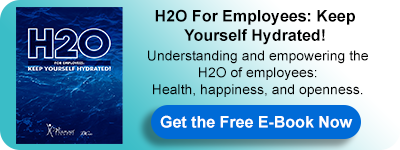How Employees Can Contribute to Their Own Health and Well-Being: Choice
Leaders has role in building a culture that promotes employees' health and well-being. Yet, do you think employees themselves play a role in being healthy? Are some health problems a manifestation of the deep inner self?
To answer these questions, we will use the guidance of The Human Element (THE) concept.
According to THE, we use our bodies to deal with unconscious problems or unacceptably negative feelings about ourselves. If we don't want to face a conflict, we can "embody" it. The idea here lies behind the concept of "Choice" within THE.
Choice
People make decisions on a daily basis, such as what to say, where to go, and what to do. As a practical tool, choice refocuses our concentration on understanding our choices and making intentional decisions that help us reach our objectives.
Hence, based on the Concept of Choice, In many cases we choose our sickness, especially when they are periodical (go and come back).
“We are not talking about tragedies here or heavy diseases we are born with”.
You may be surprised now. How is this possible? Don't we just become sick? Well, the answer is "Yes", and "No".
We assume, without assigning blame, that we choose to be unwell, that we pick the form of illness to give ourselves, and that we have the potential to heal ourselves once we are sick because we are examining the ramifications of the choice assumption. This decision can be made consciously or unconsciously. We assume complete responsibility for disease for pragmatic reasons, just as we do with the concept of choice. We are not claiming that we are responsible for all of our illnesses. We have no idea. We are sure that when we choose to be responsible for, we are motivated to find a solution or a cure to heal our sickness.
On the contrary, our victim mentality kicks in when we assume no responsibility. Thus, our motivation is low in trying to stop our illness, as we did not start it from the choice (a.k.a responsibility) perspective. When we opt for the option of "choice": I choose to be ill, it is not a choice of accusation or self-blame. It doesn't also mean I am bad, evil or careless. It only means I made a choice. It is an invitation to pursue an explanation within myself and to understand what's going on deep inside me, and what might have happened. I can see illness as a learning opportunity if I see it as a choice.
1The Human Element, Leaders Manual, Will Schutz
For more about this topic, download our latest book " H2O For Employees: Keep Yourself Hydrated! " for FREE:
